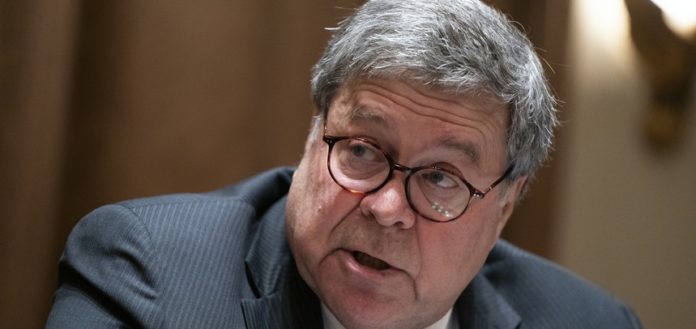Two senior Justice Department officials wrote a memo to Attorney General William Barr in March 2019 stating why the former president of the United States should not be charged with obstruction.
This memo, which was never released before, shows that all of the hysterical speculation and all the confident predictions about Trump’s being frog-marched off into prison, all the completely off-base “analysis” about the obstruction case against Donald Trump is just cow manure.
Although Trump’s decision to remove him from obstruction is well documented, the memo that was recently disclosed provides additional information about how the two department’s top-most leaders came to this conclusion. This was notable because Robert Mueller, the special counsel who led the Russia investigation declined to determine whether Trump had obstructed justice in his 448-page report, but pointed out that he did not absolve Trump.
Mueller would have been in trouble if Trump had absolved him. He decided to pass the ball to the AG knowing that it would be viewed as a partisan act to clear Trump.
Mueller’s report only cited 10 cases of obstruction. One of these instances was surely prosecutable.
The Mueller Report examined 10 instances where Trump reacted or injected himself in the Russia investigation. These include Trump’s May 2017 firing as FBI director James Comey, his request three months prior to Comey to end an investigation into Michael Flynn, his subsequent attempts to fire Mueller.
The memo was signed by Steven Engel and Edward O’Callaghan. They stated that none of the acts constitutes criminal obstruction of justice. They also said that evidence suggests that Trump took these steps “not for an illicit purpose” but because they believed that the investigation was politically motivated, and that it would hinder his ability to govern.
Trump saw the events surrounding him as a political witch-hunt. This was cited as the primary reason Trump should not be charged for a crime in the memo.
The memo states that “after the President gave his direction in each instance, the orders weren’t carried out.” “Officially, an act can be considered an attempt or an effort, even if it fails. The fact that the President could have issued these instructions himself and didn’t remove any subordinates for failing to follow his directions is a strong argument against the notion of intent to obstruct justice.
They claimed that Trump’s facts were not consistent with previous obstruction cases. They stated that Mueller cited most obstruction cases in which there was an inherently wrong effort to conceal or destroy evidence or to hinder an investigation into an underlying crime. They wrote that such factors are not present here.










